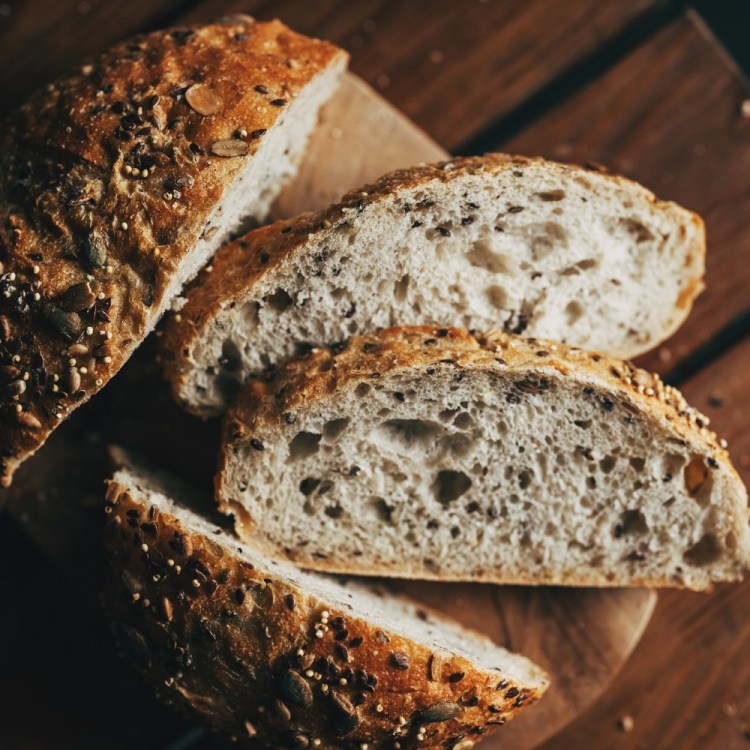Gut health isn’t the sexiest topic in wellness, but these days, it might be the most exciting. We’re only just beginning to understand the gut’s true power, and what we know already suggests that it plays a crucial role in how we feel and function, even how long we live.
A 2019 study review from the National Institutes of Health found that our gut microbiome has “profound implications for diet and disease.” A healthy gut has been linked to better athletic performance, improved muscle synthesis and sharper mental health, while poor gut health has been tied to low energy, autoimmune conditions and even skin issues.
The good news? Balancing your gut microbiome isn’t complicated. A little knowledge and a few lifestyle tweaks can go a long way. Here’s what to know and how to get started.
What Do We Mean by “Gut Health”?
Probiotic yogurt commercials might have you thinking that gut health is all about digestive function, but it’s more than that.
“Your gut is an important organ in its own right, and influences all your other organs,” explains Megan Rossi, Ph.D., also known as the Gut Health Doctor.
Thanks to the trillions of bacteria that make up your gut microbiota (GM), Rossi says your gut can impact everything from weight management and fitness levels to immune resilience and even happiness.
How Does This Benefit Me?
“Our guts have the power to influence how long we live, with a health guy linked to a reduced risk of developing over 70 chronic diseases,” Rossi adds.
A massive 70% of your immune cells live in your gut, where microbes help fight viruses and infections. An app-based study of over over 400,000 people by King’s College London showed that participants who took regular probiotic supplementation had a lower risk of catching COVID-19 and other flu-like viruses.
“We know that a more diverse gut microbiome is strongly linked to better overall health and health outcomes,” adds Jordan Haworth, a clinical physiologist at the Functional Gut Clinic. “Diversity means more different types of bacteria in the gut, with a diverse gut microbiome linked to reduced risk of cardiometabolic disease and better brain health thanks to the gut-microbiota-brain axis.”
“The gut and the brain are literally connected through hundreds of millions of nerves,” Rossi notes — meaning stress, mood and cognitive decline are all influenced by gut health. Imbalances in this system have been linked to depression, anxiety, Parkinson’s and Alzheimer’s disease. Fortunately, your gut microbiome isn’t shaped by genetics. It’s shaped by your lifestyle choices.
This Is Your Brain on Creatine
Most commonly linked to muscle building, the supplement can actually encourage short-term memory and clear thinking, tooThe Warning Signs You Should Know
Digestive symptoms such as heartburn, abdominal pain, bloating, diarrhea and constipation are all signs that storm clouds are brewing in your gut. On the other hand, flatulence might actually be sign that your gut microbes are well fed and happy.
“Regular illness and infections might be a sign your gut health needs work,” says Haworth; skin issues like acne and eczema, as well as fatigue and low mood are also signs of gut imbalances. Your gut can also give you warning signs for more sinister conditions, including bowel cancer.
“Rates of bowel cancer are rising globally, and those born after 1990 are seeing the sharpest increase,” says Rossi. The science suggests that this could be related to our shift away from traditional diets (think high-fiber, plant-rich eating habits) in favor of more ultra-processed foods, red and processed meat, and added sugars. Warning signs can include changes in your bowel habits, unexplained weight loss (5% or more of your total bodyweight), uncomfortable and constant bloating, and fatigue that doesn’t improve with rest.
Boost Your Gut Health for Good
In Haworth’s opinion, the most important thing you can do to protect your gut microbiome is to have good food hygiene.
“The worst thing you can do for gut heath is to get food poisoning or a stomach bug,” he says. “Depending on the type of bacteria, virus or even parasite, you have an increased risk of developing long-term gut-health issues. For example, around one in five people who catch campylobacter are still suffering from gut health issues 12 months later.”
All that to say: wash your hands. But here are five other ways to more directly boost your gut health.
1. Eat Your “Super Six”
We’re talking about vegetables, fruit, whole grains, nuts and seeds, legumes, and herbs and spices. According to Rossi, when it comes to nourishing your gut bacteria, the more variety the better. What’s more, according to the American Gut Project, people who eat 30 or more different types of plants a week have a more diverse gut microbiome.
2. Focus on Inclusion
According to Rossi, eating a wider variety of foods has a more beneficial impact on your gut microbiome than cutting out foods like gluten. A Harvard study of nearly 200,000 people taking place over 30 years found that those who consumed the most gluten had a 13% lower risk of Type 2 diabetes due to increased levels of cereal fiber in their diet.
3. Chew It Over
Digestion starts in your mouth. According to Rossi, proper chewing increases nutrient absorption by up to 30%.
4. Try a Probiotic
While there’s no evidence to support daily probiotics for general gut health, using specific probiotics is recommended when you’re on antibiotics, as it can boost your immune system. “For example, taking the probiotic strain Lactobacillus rhamnosus alongside antibiotics has been shown to protect your gut and reduce your risk of antibiotic-associated diarrhea by 70%,” says Rossi.
5. Hit the Hay
If you struggle with gut issues, you might notice a lack of sleep can worsen your symptoms. As well as denying our bodies recovery time, sleep deprivation typically means we can reach for fast sources of energy; and sugary food, predictably, isn’t great for the gut. Getting seven to nine hours of sleep per night doesn’t only help gut bacteria rest, it helps us make smart nutritional choices to support them, too.
Whether you’re looking to get into shape, or just get out of a funk, The Charge has got you covered. Sign up for our new wellness newsletter today.




















